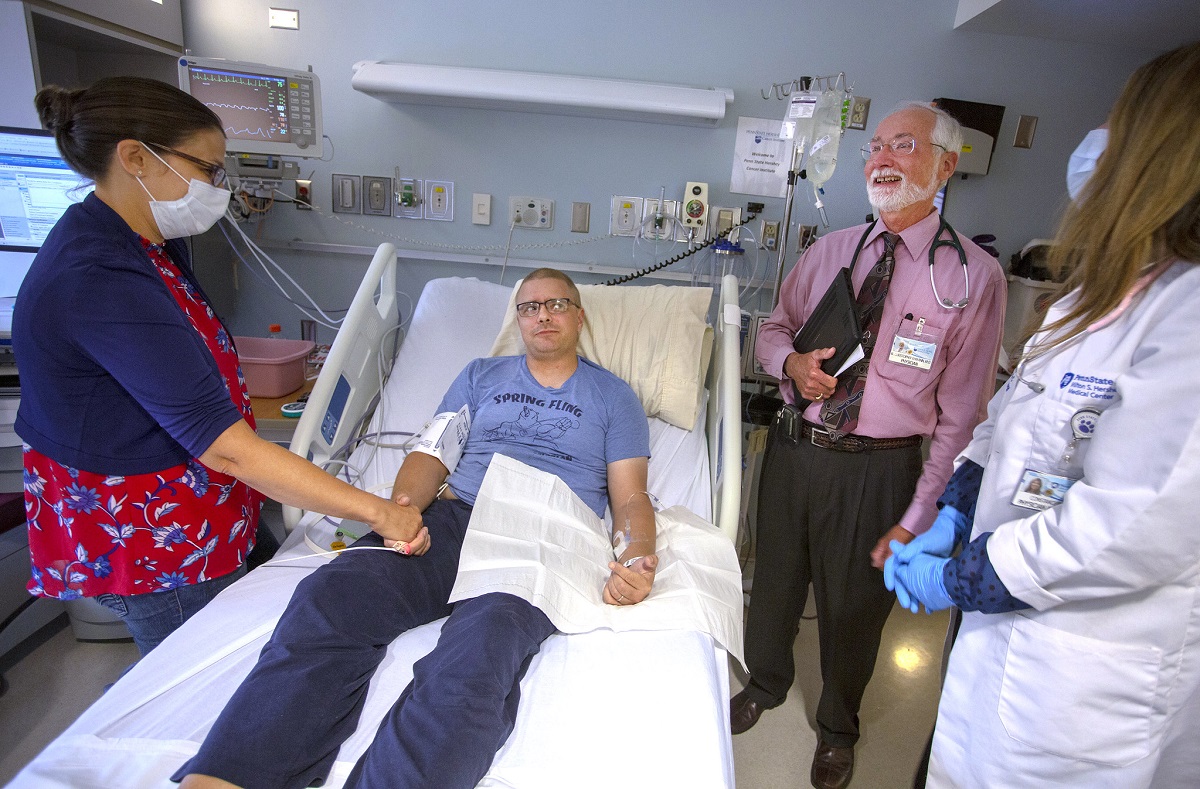Penn State Cancer Institute bone marrow transplant program earns renewed accreditation

Penn State Cancer Institute’s bone marrow transplant program earned renewed accreditation in June from the Foundation for the Accreditation of Cellular Therapy (FACT).
The institute received the accreditation for each of the past 20 years. Accreditation is required to perform stem cell transplant and remain part of the international network of donors upon which patients depend for potentially lifesaving procedures for many blood cancers and blood diseases. FACT awards accreditation once every three years.
“Being FACT-accredited means we can obtain stem cells for our patients from anywhere—even from outside the country—through the National Marrow Donor Program,” said Roxann Conrad, bone marrow transplant program manager.
Organizations voluntarily seek and maintain FACT accreditation through a rigorous process that includes peer-reviewed, on-site inspections. Accreditation ensures a hospital’s clinical programs and personnel maintain the highest standards of care.
This most recent FACT accreditation is the first since the program began offering chimeric antigen receptor (CAR) T-cell therapy. The groundbreaking treatment extracts several million white blood cells―called T cells―from a patient. Those cells are then genetically modified in a lab to fight blood cancer and reinfused into a patient’s body. The latest accreditation confirms the program’s ability to perform CAR T-cell therapy at high standards.
The institute performed its first CAR T infusion in September 2018, and that first patient, along with many others, remain in remission today from large B-cell lymphoma.
In addition to providing CAR T, the institute’s program offers four types of stem cell transplants:
- Autologous, which collects blood-forming stem cells prior to high dose chemotherapy, then transplants them back into a patient’s bloodstream so he or she can regrow healthy bone marrow. This type of transplant helps to avoid serious side effects of high-dose chemotherapy.
- Allogenic, or matched, in which a donor’s human leucocyte antigen-matched blood stem cells are used.
- Allogeneic, or haploidentical, which transplants blood stem cells from a donor — mostly from a family member — who is not a close match.
- Cord blood transplant, which uses stored cord blood for transplant.
Physicians choose the most appropriate donor for each patient.
The program treats conditions such as lymphomas, myelomas and other blood diseases. Hematologist/medical oncologist Dr. Shin Mineishi provides clinical direction for the program, which includes physicians, nurse coordinators, transplant coordinators and colleagues in the hematopoietic cell therapy lab and apheresis center in Department of Pathology. Last year, despite the pandemic, the program’s team completed 212 transplants, a record number.
“We’re the only bone marrow transplant program in central Pennsylvania, which means people don’t have to travel to Philadelphia, Pittsburgh or Baltimore for care,” Conrad said.
The program offers stem cell marrow transplants for both adult and pediatric patients and performed its first adult transplant nearly 25 years ago.
If you're having trouble accessing this content, or would like it in another format, please email Penn State Health Marketing & Communications.
